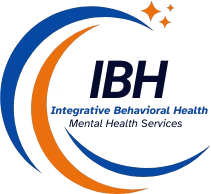Grief is one of life’s most profound emotional experiences. Whether it stems from the loss of a loved one, the end of a significant relationship, or other forms of loss, grief can feel overwhelming and isolating. Understanding the stages of grief can help you navigate this difficult journey, offering clarity and reassurance that healing is possible.
In this blog, we’ll explore the five stages of grief—denial, anger, bargaining, depression, and acceptance—along with practical strategies to cope and the importance of mental health support throughout the process.
What Are the Stages of Grief?
The concept of grief stages comes from Elisabeth Kübler-Ross’s model, which outlines the emotional processes many people experience after a loss. While not everyone goes through these stages in the same order—or experiences all of them—they provide a framework for understanding the grieving process.
1. Denial: “This Can’t Be Happening”
Denial is often the first reaction to loss. It acts as a protective mechanism, allowing you to process the shock gradually. You might feel numb or disconnected, struggling to accept the reality of what has happened.
Coping Strategies:
- Allow yourself time to process your emotions at your own pace.
- Talk to someone you trust about your feelings, even if they seem scattered or incoherent.
- Practice grounding techniques, such as deep breathing or mindfulness, to stay present.
2. Anger: “Why Is This Happening to Me?”
Anger is a natural response to loss and can manifest as frustration, resentment, or even rage. You might feel angry at yourself, others, or the circumstances of the loss.
Coping Strategies:
- Acknowledge your anger without judgment—it’s a valid emotion during grief.
- Channel your feelings into physical activity, such as walking, running, or punching a pillow.
- Write down your thoughts in a journal to release pent-up emotions constructively.
3. Bargaining: “If Only I Had Done Something Differently”
Bargaining often involves thoughts of “what if” and “if only,” as you attempt to regain control or make sense of the loss. This stage can bring guilt or regret about things you did or didn’t do.
Coping Strategies:
- Remind yourself that grief is not about blame—loss is rarely within anyone’s control.
- Seek comfort in positive memories or actions you took during your time with the person or situation you’ve lost.
- Consider talking with a therapist to process guilt and develop healthier thought patterns.
4. Depression: “I Can’t Handle This”
Depression is a stage where the weight of the loss truly sinks in, bringing feelings of sadness, emptiness, or despair. This stage can feel the hardest, as it often involves acknowledging the permanence of the loss.
Coping Strategies:
- Give yourself permission to grieve—there’s no “right” way to feel during this time.
- Surround yourself with supportive people, even if you don’t feel like talking.
- Engage in small acts of self-care, such as eating regular meals, getting fresh air, or listening to soothing music.
5. Acceptance: “This Is My New Reality”
Acceptance doesn’t mean forgetting or being okay with the loss. It means reaching a place where you can acknowledge the loss and begin to move forward. This stage brings a sense of peace and the ability to find meaning beyond the grief.
Coping Strategies:
- Focus on creating a new routine or finding new ways to honor what you’ve lost.
- Engage in activities that bring joy or fulfillment, even in small doses.
- Consider joining a grief support group to connect with others who understand your experience.
How Mental Health Support Can Help
Grief is a deeply personal process, and there’s no one-size-fits-all approach to healing. Seeking mental health support can provide valuable tools and guidance to help you through the journey. Therapists, counselors, and grief support groups offer:
- A safe space to express your emotions without judgment.
- Coping techniques tailored to your unique needs and circumstances.
- Guidance in navigating complex emotions like guilt, anger, or despair.
Organizations like IBH provide accessible resources and support to help individuals manage grief and mental health challenges. Remember, seeking help isn’t a sign of weakness—it’s a step toward healing.
A Path Forward
Grief is a journey, not a destination. By understanding the stages of grief and embracing support, you can navigate the emotional complexities of loss and find a way to move forward. Healing doesn’t mean forgetting—it means carrying the love, lessons, and memories of what you’ve lost into the next chapter of your life.
If you or someone you know is struggling with grief, don’t hesitate to seek help. The IBH team is here to support you through every stage of the process.
